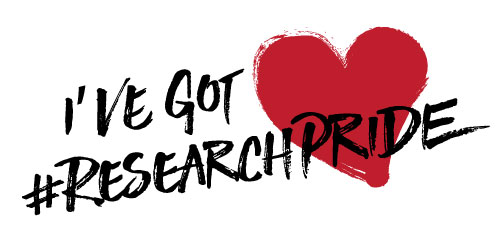 Are you familiar with the imagery of a devil on one shoulder and an angel on the other, both whispering in your ear, trying to influence your behavior? In the information services field it sometimes feels likes we have artificial intelligence on one shoulder and humanity on the other, each trying to get us to follow the path on the right or left.
Are you familiar with the imagery of a devil on one shoulder and an angel on the other, both whispering in your ear, trying to influence your behavior? In the information services field it sometimes feels likes we have artificial intelligence on one shoulder and humanity on the other, each trying to get us to follow the path on the right or left.
Does it have to be one or the other? Good versus evil? Artificial intelligence versus humanity?
I had the privilege of interviewing prospect research thinker Valerie Anastasio recently for the Prospect Research #ChatBytes podcast. Years ago when the Apra Talks first debuted at Apra’s annual international conference, she was one of the first presenters. She talked about profiles and the future. Would artificial intelligence take over our profession? Her message: the march is on …but we are just as important as before!
If you haven’t listened to Valerie’s 20 minute podcast yet, I give you permission to go ahead and take a tea or coffee break right now.
Valerie walks us through the dawn of the internet right up to the data aggregators and social media firehose of information available to us now. She talks about what our profession has lost sight of and the opportunities it is gaining as it moves into the future. It’s good stuff.
Advances in information technology have transformed the prospect research profession. Even so, our primary role remains the same. As prospect research professionals we provide the information necessary to guide and support the fundraising effort – the relationship donors have with the organization.
How and what kind of information we provide has changed and will continue to change.
I won’t spoil the podcast for you and share Valerie’s vision for what that change might look like in the future, but I will share with you how you can change your mindset in a way that prepares you for the future of our profession.
- Don’t sell products; sell service partnerships. So often we refer to our work as a “product.” We can give you a profile, a wealth screening, or data analysis. The future is in partnerships. We can listen and understand what you need to move fundraising forward, and translate the information to get you there.
- Be a sales person. That means communicating in the way your end-user prefers, which could be on the phone or in-person. It also means actively marketing your services. Why should anyone care about the all-in-one rating you created to prioritize the prospect pipeline? Listen to their “pain” and “speak” the solution.
- Omit the details. Prospect research must still understand and be accurate in the details, but don’t torture your end-user with them. Big picture thinkers often make good leaders, but they won’t listen to you drone on about all of the options. Listen to them, decide what you think will work best, present the solution confidently, and then you can keep tweaking until it works.
Back to our devil vs. angel imagery, if the march of artificial intelligence is already on, which shoulder should you be listening to – artificial intelligence or humanity? Both! Valerie listens carefully to the voice of artificial intelligence, the advances in information technology, but also to the voice of humanity, the way in which humans behave and relate to one another. She combines them both to create a central path for her organization. This is the path that leads to the deepest connections with the most capable donors.
As you listen to the prophets and skeptics of artificial intelligence, remember your history, and consider Valerie’s description of her experience with the internet revolution. Change doesn’t happen overnight. It will happen, but probably not quite the way we all expect it to.
One thing I am certain about: prospect research professionals will continue to provide invaluable support to their organization’s fundraising programs. So go on, indulge yourself in a little #ResearchPride!
Additional Resources
- Prospect Research #ChatBytes with Valerie Anastasio
- Big Good – Philanthropy in the Age of Big Data & Cognitive Computing by David Lawson
- You Can’t Lead from Behind: A Cautionary Tale About Disruptive Technology
How about a fun way to show your #ResearchPride at the office?
Click here for #ResearchPride Swag

 Are you proud of the work that you do? Do you get excited about solving information challenges at work? If so, why not take the opportunity this month to share your
Are you proud of the work that you do? Do you get excited about solving information challenges at work? If so, why not take the opportunity this month to share your